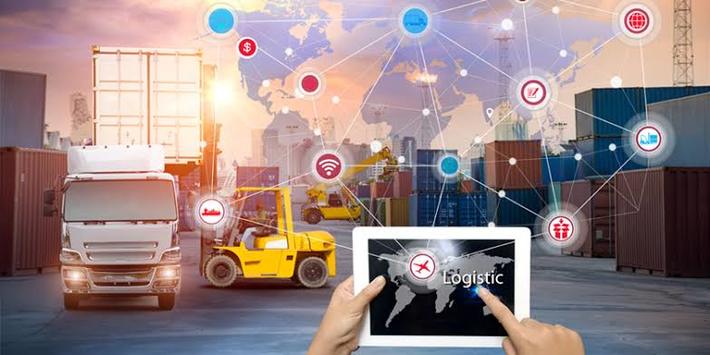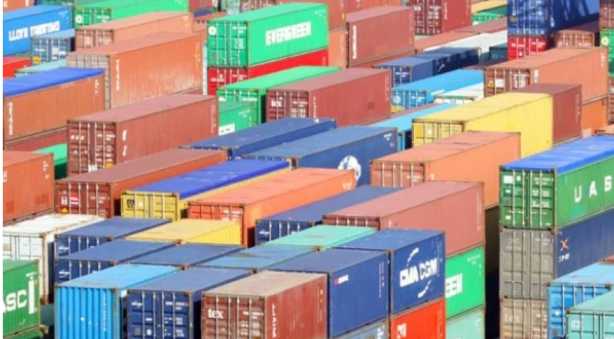The future is here and getting smarter every day. With the emergence of IoT, our world is becoming more connected than ever before thanks to technology. How? By utilizing what’s already in place – namely, everything that is internet ready. Traditional methods are being replaced by a new way of doing things – one that relies on data and connectivity as opposed to mere human input. In this article, we’ll take a look at five ways the future of IoT-based logistics will affect you.
IoT can be defined as a network of physical objects that are embedded with sensors and connected to the internet, allowing them to collect and exchange data. When applied to logistics, IoT can be used to track shipments, monitor inventory levels, and even predict maintenance needs. Although it is still in its early stages, IoT is expected to have a major impact on logistics in the coming years.
Here are the ways IoT will change the way goods are transported and stored:
1. Smarter Shipping Containers
Shipping containers equipped with sensors and GPS tracking devices will become more common, allowing shippers to track their location in real-time and receive alerts if they are off course. This will help reduce lost or stolen shipments, as well as improve customer service by providing up-to-date ETAs.
2. Automated Inventory Management
Sensors placed in storage facilities will automatically keep track of inventory levels, eliminating the need for manual counts. This will not only save time but also reduce errors and improve accuracy.
3. Predictive Maintenance
By collecting data on things like temperature, humidity, and vibration levels, IoT can be used to predict when equipment is likely to fail. This information can then be used to schedule maintenance before
Also Read: Uses and Importance of World Wide Web
How does IoT work with inventory management?
The internet of things, or IoT, is a system of interconnected devices and sensors that can collect and share data. This data can be used to track inventory levels, identify trends, and predict customer demand. By connecting inventory management systems to the internet, businesses can gain real-time visibility into their stock levels and make more informed decisions about ordering and stocking products.
In the past, businesses would have to rely on manual processes or periodic reports to track inventory levels. This could lead to issues such as overstocking or running out of products. With IoT-enabled inventory management, businesses can get a more accurate picture of their stock levels in real-time. This information can be used to optimize ordering and stocking decisions, reducing the chance of lost sales due to out-of-stock items.
IoT devices can also be used to track other aspects of the supply chain, such as warehouse temperatures and humidity levels. By monitoring these conditions, businesses can ensure that their products are stored properly and avoid damage or spoilage.
In addition to improving inventory management, IoT can also help businesses save money on transportation costs. For example, by tracking the location of vehicles in real-time, businesses can optimize routes and avoid traffic congestion. This information can also be used to plan delivery schedules around customer demand patterns, ensuring that products arrive when they are needed most.
Why is IoT good for Logistics?
The internet of things, or IoT, is a system of interconnected devices and sensors that can collect and share data. This data can be used to improve the efficiency of logistics operations, such as tracking shipments and managing inventory.
IoT can help logistics companies save time and money by reducing the need for manual tasks, such as data entry and tracking. In addition, IoT can provide real-time visibility into the location of assets and inventory, which can help to optimize routing and prevent lost or damaged goods.
IoT can also improve the customer experience by providing real-time updates on the status of orders. Customers can track their shipments and receive updates when their package is delivered. This transparency can help to build trust and loyalty between customers and logistics companies.
How will the Future of IoT logistics affect you?
The future of IoT logistics will have a big impact on how we live and work. Here are some ways the future of IoT logistics will affect you:
You’ll be able to track your packages in real-time: With the help of IoT devices, logistics companies will be able to track packages in real-time, so you’ll always know where your package is and when it will arrive.
Your commute will be shorter and less stressful: Traffic congestion is a major issue in many cities around the world. But with the help of IoT-enabled traffic management systems, commuters will be able to avoid traffic jams and get to their destinations faster.
You’ll never have to worry about losing your keys again: Smart locks that are controlled by your smartphone or other IoT device will become more common in the future. So, if you ever lose your keys, you’ll still be able to get into your home or office.
You’ll be able to shop without leaving your house: Online shopping is already convenient, but it’s about to get even easier. In the future, you’ll be able to order groceries and other items from your fridge or pantry using an app on your smartphone. The items will then be delivered to your doorstep by drones or robots.
You’ll save time and money on travel: Thanks to advances in virtual reality technology, you’ll be able to explore new places and experience different cultures
Conclusion
The future of IoT logistics is looking very exciting, with many new and innovative technologies set to change the way we ship and receive goods. As people have started understanding the uses and importance of world wide web, things have become even more interesting. Whether you’re a business owner or an individual consumer, it’s important to stay up-to-date on these changes so that you can take advantage of them. We hope this article has given you a good overview of some of the ways that the future of IoT logistics will affect you. Thanks for reading!


4 thoughts on “5 Ways the Future of IoT Logistics Will Affect You”